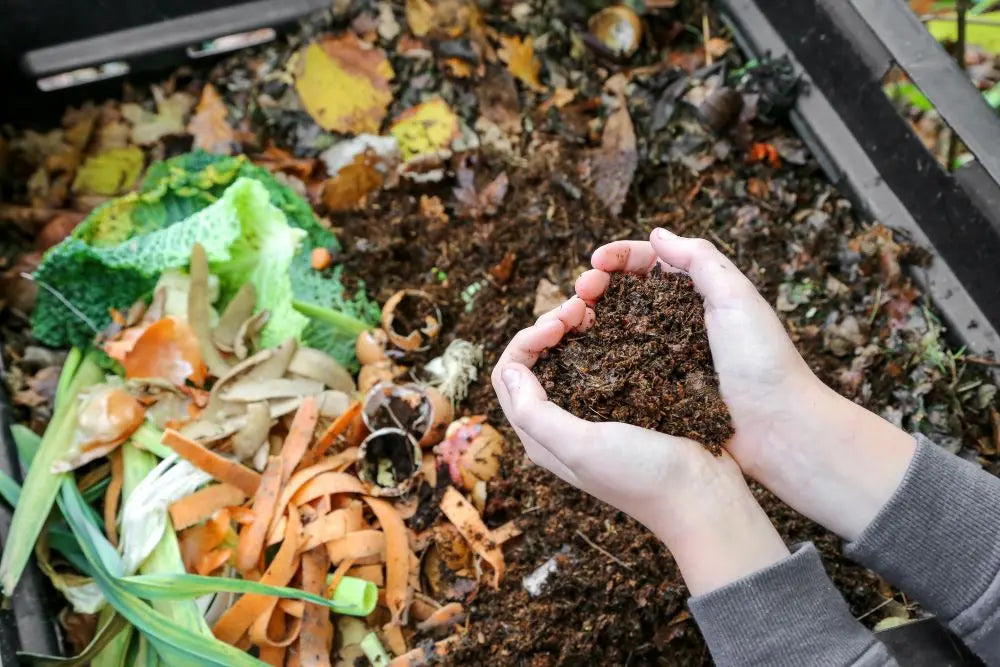From £6.99

Cultivating a Greener Future: Embrace Sustainable Gardening Practices
In today's world, sustainable gardening is more important than ever. With increasing environmental concerns, gardeners are seeking eco-friendly practices to reduce waste and conserve valuable resources. This blog post explores a variety of sustainable gardening techniques that empower modern gardeners to cultivate thriving gardens while minimizing their environmental impact.
The Importance of Sustainable Gardening
Sustainable gardening is not just a trend; it's a responsible approach to nurturing our environment. By incorporating eco-friendly practices, gardeners can contribute to biodiversity, conserve water, and reduce their carbon footprint. Moreover, sustainable gardens often require fewer resources, making them more cost-effective in the long run.
Composting: Nature's Recycling System
One of the most effective ways to reduce waste in the garden is through composting. Composting transforms kitchen scraps and garden waste into nutrient-rich soil amendments that enhance soil health. Here's how to get started:
1. Choose the Right Location: Select a well-drained spot in your garden. A bin or a simple pile will suffice.
2. Balance the Ingredients: Combine green materials (kitchen scraps, grass clippings) with brown materials (dried leaves, twigs) to maintain a balanced compost.
3. Maintain and Harvest: Turn the pile regularly to aerate and speed up decomposition. In a few months, you'll have rich compost ready to use.
Rainwater Harvesting: A Precious Resource
Rainwater harvesting is an effective method to conserve water and ensure your garden gets the hydration it needs without relying solely on municipal water supplies. Here are some steps to implement rainwater harvesting:
1. Install a Rain Barrel: Place a rain barrel under your downspout to collect runoff from your roof.
2. Use Efficient Irrigation: Drip irrigation systems can be connected to your rain barrel, providing a steady supply of water directly to plant roots.
3. Plan for Overflow: Ensure excess water is directed towards areas in your garden that can benefit from additional moisture or into a drainage system.
Organic Pest Control: Protecting Plants Naturally
Chemical pesticides can harm beneficial insects and disrupt the natural balance of your garden. Embrace organic pest control methods to protect your plants while fostering a healthy ecosystem:
1. Encourage Beneficial Insects: Plant flowers that attract pollinators and predatory insects that feed on garden pests.
2. Use Natural Remedies: Neem oil, insecticidal soap, and diatomaceous earth are effective natural alternatives to traditional pesticides.
3. Companion Planting: Plant certain species together to naturally repel pests. For example, marigolds can deter aphids and other common garden pests.
Mulching: Nature's Moisture Retainer
Mulching is a straightforward technique to conserve moisture, suppress weeds, and enrich your soil. By applying a layer of organic material such as straw, wood chips, or grass clippings, you can maintain soil temperature and reduce evaporation.
1.Select Appropriate Materials: Choose mulch that complements your garden's specific needs and climate.
2. Apply Evenly: Spread mulch about 2-3 inches thick around the base of plants, being careful not to smother them.
3. Replenish Regularly: Over time, organic mulch breaks down and enriches the soil. Remember to top it up as needed.
Conclusion
Embracing sustainable gardening practices is a rewarding journey that benefits both the gardener and the environment. By integrating techniques such as composting, rainwater harvesting, organic pest control, and mulching, you can create a garden that thrives while minimizing your environmental impact. Let's cultivate a green future, one garden at a time.
